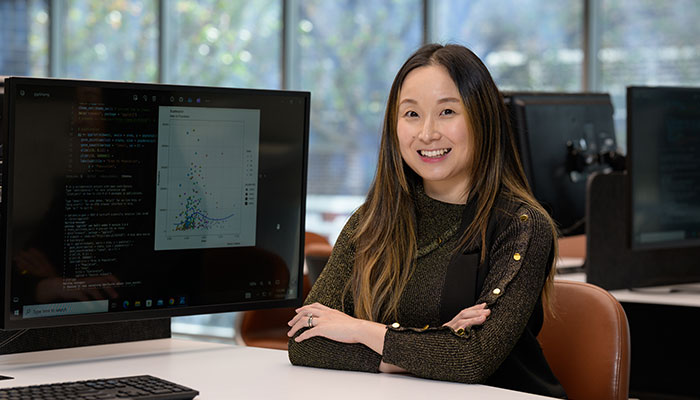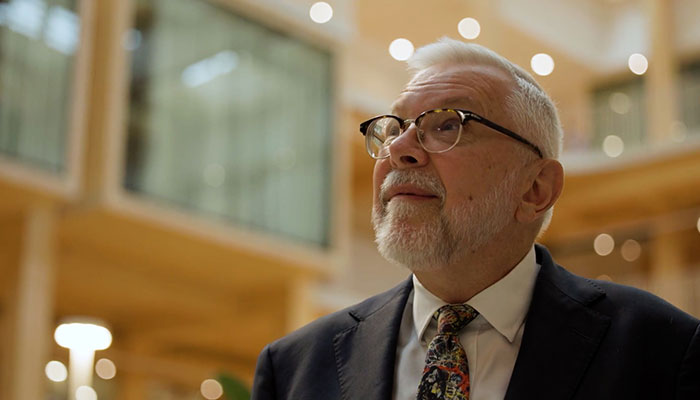Teacher: Dr Lin Yue is the Course Director of Master of Business Analytics - the largest postgraduate course at Macquarie University - and a Lecturer in the Department of Actuarial Studies and Business Analytics in the Macquarie Business School.

Groundwork: Lin holds a Bachelor’s (Hons) Degree and Master of Computer Science from Ireland, and a PhD in Information Systems from UNSW.
Gold stars: Lin has published several papers on digital enablement, digital innovations and business analytics applications in leading information systems journals, and is an accredited Fellow of Higher Education Academy (FHEA).
How Lin’s students describe her: Approachable, patient, and good at explaining difficult concepts.
What Lin says:
My approach to teaching is, first and foremost, to understand my students’ backgrounds. I teach business analytics and I have a lot of students who come from a non-technical background. So, they have no coding experience and the first question they ask me is ‘Lin, is this going to be very hard?’ I try to encourage them and during the first few weeks of teaching I use real-life examples to explain very complicated theories.
I encourage student engagement through ‘flipped' classrooms. In a flipped classroom the students can be the main characters, so I’m not the one who’s teaching all the time. As a teacher you can be really skilled but that doesn’t mean anything if your students don’t understand. The materials for my classes are quite interactive and I expect my students to do preparation and reading before class, so they are ready to talk about their experience and understanding of coding and programming and have some reflections to share with their classmates.
I tell my students to come and see me as often as they need. As teachers, we want everyone to do well.
I can empathise with international students because I was one myself. Ninety-seven per cent of my students are international students and I think it’s important to consider their feelings and everything they are dealing with. When I first went to Ireland to study for my undergraduate degree, I actually didn't understand anything. It was very hard at the beginning. But in the end, I understood everything. I always use my experience to encourage my students. I tell them not to limit themselves, because they don’t know yet how much they will progress over the years. I tell them they might own a big company, or be an entrepreneur, or become a senior executive. It's like me 10 years ago, I didn’t actually know what I was going to be, but what I wanted to do was just understand the content of the lecture. That was my only goal. I am always trying to use my own story to inspire my students.
What I love most about teaching is watching students learn and grow. I often get feedback from students who say that something I have told them in class really helped them, and that makes me happy. I always tell students that knowledge is quite limited because we only have 13 weeks in my class together, but they will have the skills to learn and study for their whole lives. What we discuss today is hopefully applicable and useful when they are making decisions in the future.
I like to come to class a little early and leave a little late. This gives quieter students the opportunity to come and talk to me. I also give them the opportunity to submit their assignments early so they can get feedback from me. That’s how I achieved high distinctions as a student; by finishing my assignment a week or two before the deadline. I tell my students to come and see me as often as they need. As long as I can see them trying to improve, that's a good thing. As teachers, we want everyone to do well.
Preparing students for job interviews is important. I use online resources that help them expand their knowledge and prepare them for questions they will be asked in interviews. They need to be able to put whatever they are learning about into practice, whether they plan to work in tech or finance. So, I use these questions to relate back to what they learned the previous week to help them revise and prepare them for their future careers.



